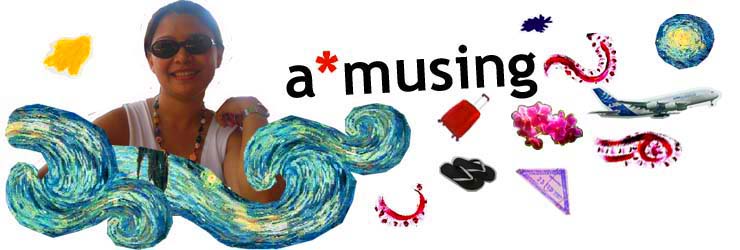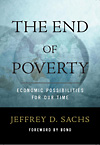
Breathtaking sunset in the southernmost tip of the Philippines
... a moment of peace in a place of strife
PICO IYER is one of the most accomplished travel essayist of our time. Here is his beautiful piece on silence, printed in 1993 by Time magazine.
EVERY ONE OF US KNOWS the sensation of going up, on retreat, to a high place and feeling ourselves so lifted up that we can hardly imagine the circumstances of our usual lives, or all the things that make us fret. In such a place, in such a state, we start to recite the standard litany: that silence is sunshine, where company is clouds; that silence is rapture, where company is doubt; that silence is golden, where company is brass.
But silence is not so easily won. And before we race off to go prospecting in those hills, we might usefully recall that fool's gold is much more common and that gold has to be panned for, dug out from other substances. "All profound things and emotions of things are preceded and attended by Silence," wrote Herman Melville, one of the loftiest and most eloquent of souls. Working himself up to an ever more thunderous cry of affirmation, he went on, "Silence is the general consecration of the universe. Silence is the invisible laying on of the Divine Pontiff's hands upon the world. Silence is the only Voice of our God." For Melville, though, silence finally meant darkness and hopelessness and self-annihilation. Devastated by the silence that greeted his heartfelt novels, he retired into a public silence from which he did not emerge for more than 30 years. Then, just before his death, he came forth with his final utterance -- the luminous tale of Billy Budd -- and showed that silence is only as worthy as what we can bring back from it.
We have to earn silence, then, to work for it: to make it not an absence but a presence; not emptiness but repletion. Silence is something more than just a pause; it is that enchanted place where space is cleared and time is stayed and the horizon itself expands. In silence, we often say, we can hear ourselves think; but what is truer to say is that in silence we can hear ourselves not think, and so sink below our selves into a place far deeper than mere thought allows. In silence, we might better say, we can hear someone else think.
Or simply breathe. For silence is responsiveness, and in silence we can listen to something behind the clamor of the world. "A man who loves God, necessarily loves silence," wrote Thomas Merton, who was, as a Trappist, a connoisseur, a caretaker of silences. It is no coincidence that places of worship are places of silence: if idleness is the devil's playground, silence may be the angels'. It is no surprise that silence is an anagram of license. And it is only right that Quakers all but worship silence, for it is the place where everyone finds his God, however he may express it. Silence is an ecumenical state, beyond the doctrines and divisions created by the mind. If everyone has a spiritual story to tell of his life, everyone has a spiritual silence to preserve.
So it is that we might almost say silence is the tribute we pay to holiness; we slip off words when we enter a sacred space, just as we slip off shoes. A "moment of silence" is the highest honor we can pay someone; it is the point at which the mind stops and something else takes over (words run out when feelings rush in). A "vow of silence" is for holy men the highest devotional act. We hold our breath, we hold our words; we suspend our chattering selves and let ourselves "fall silent," and fall into the highest place of all.
It often seems that the world is getting noisier these days: in Japan, which may be a model of our future, cars and buses have voices, doors and elevators speak. The answering machine talks to us, and for us, somewhere above the din of the TV; the Walkman preserves a public silence but ensures that we need never -- in the bathtub, on a mountaintop, even at our desks -- be without the clangor of the world. White noise becomes the aural equivalent of the clash of images, the nonstop blast of fragments that increasingly agitates our minds. As Ben Okri, the young Nigerian novelist, puts it, "When chaos is the god of an era, clamorous music is the deity's chief instrument."
There is, of course, a place for noise, as there is for daily lives. There is a place for roaring, for the shouting exultation of a baseball game, for hymns and spoken prayers, for orchestras and cries of pleasure. Silence, like all the best things, is best appreciated in its absence: if noise is the signature tune of the world, silence is the music of the other world, the closest thing we know to the harmony of the spheres. But the greatest charm of noise is when it ceases. In silence, suddenly, it seems as if all the windows of the world are thrown open and everything is as clear as on a morning after rain. Silence, ideally, hums. It charges the air. In Tibet, where the silence has a tragic cause, it is still quickened by the fluttering of prayer flags, the tolling of temple bells, the roar of wind across the plains, the memory of chant.
Silence, then, could be said to be the ultimate province of trust: it is the place where we trust ourselves to be alone; where we trust others to understand the things we do not say; where we trust a higher harmony to assert itself. We all know how treacherous are words, and how often we use them to paper over embarrassment, or emptiness, or fear of the larger spaces that silence brings. "Words, words, words" commit us to positions we do not really hold, the imperatives of chatter; words are what we use for lies, false promises and gossip. We babble with strangers; with intimates we can be silent. We "make conversation" when we are at a loss; we unmake it when we are alone, or with those so close to us that we can afford to be alone with them.
In love, we are speechless; in awe, we say, words fail us.
Credit: The scenic sunset was snapped by Queenie Rojo





















